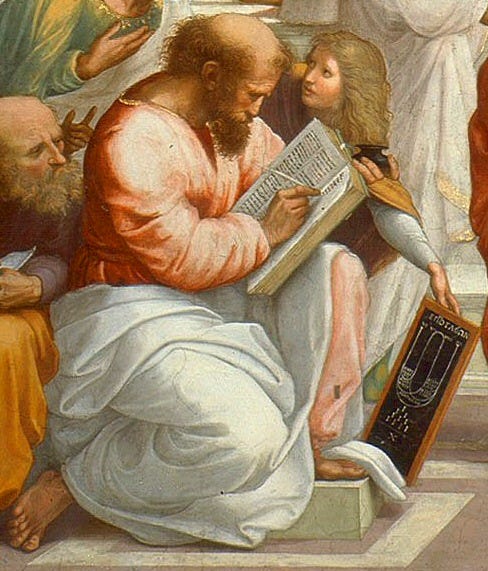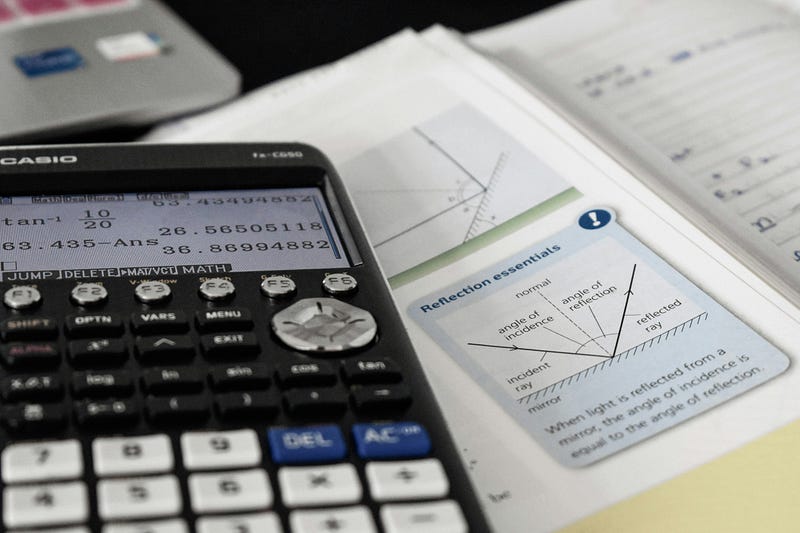# The Interplay of Mathematics and Science: An In-Depth Exploration
Written on
Chapter 1: Introduction
The idea of linking mathematics with the sciences likely crossed your mind at some point. Every field of science, from the natural (like astronomy, biology, and geology) to the social (such as psychology, history, and economics), heavily relies on mathematical principles. Mathematics serves as more than just a language filled with intricate symbols; it also encompasses foundational formulas and equations that underpin a wide array of scientific disciplines. Yet, this does not automatically classify math as a science. Why is that?
Section 1.1: Defining Science
Typically, science is recognized as a discipline that examines natural and social phenomena through objective observation and empirical methods. The essence of science lies in the scientific method, a systematic process that involves:
- Formulating hypotheses based on observations.
- Testing these hypotheses against evidence gathered from various experiments.
- Refining hypotheses based on the results obtained.
For example, chemistry investigates the properties and reactions of substances, physics explores the behavior of matter, and biology studies living organisms.

Photo by Alex Kondratiev on Unsplash
Section 1.2: Understanding Mathematics
Defining mathematics proves to be more complex. Broadly speaking, it is an abstract field encompassing various topics, including numbers, formulas, and geometric shapes. Unlike the sciences, mathematics cannot be directly applied to study the natural world, which raises the question of its classification as a true science.
Section 1.3: The Nature of Mathematical Existence
The debate continues regarding whether mathematics is a discovery or an invention of humanity. My perspective is that while we have created the means to express mathematical concepts (such as integers and symbols), the essence of math itself exists independently in nature, awaiting our discovery. For instance, the Fibonacci sequence is a recurring phenomenon in nature, observable in sunflowers, butterfly wings, and even galaxies.
If math were merely a human construct, theoretically, one could devise an entirely new branch of mathematics that could invalidate existing principles (like proposing division by zero), which would render mathematics meaningless. However, this is not the case. Certain equations hold indisputable truth, forming the backbone of scientific understanding. Imagine if the Pythagorean theorem were proven false; it would necessitate a complete overhaul of half of physics and related disciplines!

Pythagoras of Samos (ca. 570–495 BC) with a tablet of ratios, as depicted in ‘School of Athens’ by Raphael. Public domain, source: Wiki Commons
Section 1.4: Philosophy's Role in Mathematics
Pythagoras, renowned as both a mathematician and philosopher, famously stated, "There is geometry in the humming of the strings. There is music in the spacing of the spheres." Many others, including Thales, Descartes, Leibniz, Russell, and Pascal, share this dual identity. This suggests a connection—albeit subtle—between mathematics and philosophy. In a way, mathematics can be seen as a practical manifestation of philosophy, or applied philosophy, if you will. Thus, philosophy can be viewed as the foundation from which all mathematical and scientific thought emerges.
Chapter 2: Counterarguments and Perspectives
Some proponents argue for a category of science known as formal science, which includes mathematics, logic, statistics, and theoretical computer science. Embracing this notion would necessitate a broader definition of science itself.
In my view, we should resist the urge to pigeonhole everything and instead marvel at how such abstract concepts serve as the cornerstone of not only science but also art and religion.
Section 2.1: Inspirational Quotes on Mathematics
To conclude, here are some insightful quotes that capture the essence of mathematics:
- "Mathematics is the music of reason." — James Joseph Sylvester
- "The pure mathematician, like the musician, is a free creator of his world of ordered beauty." — Bertrand Russell
- "One of the pleasures of looking at the world through mathematical eyes is that you can see certain patterns that would otherwise be hidden." — Steven Strogatz
- "Mathematics as an expression of the human mind reflects the active will, the contemplative reason, and the desire for aesthetic perfection." — Richard Courant
- "Mathematics, in general, is fundamentally the science of self-evident things." — Felix Klein

Photo by Anoushka Puri on Unsplash
Chapter 3: Video Insights on Mathematics
In the video titled "Is Math Invented or Discovered? | Scientific Controversies," the discussion revolves around the ongoing debate about whether mathematics is a human invention or a discovery of universal truths.
The video "Is Mathematics Pseudo-Science?" challenges the classification of mathematics and its relationship with scientific inquiry, prompting viewers to reconsider its role in the broader context of knowledge.